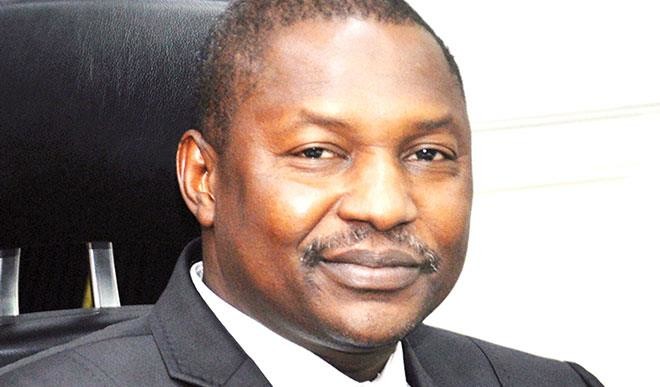Changing conflicts challenge humanitarian laws
Justice minister Abubakar Malami says “increasingly changing” nature of armed conflict is a challenge, but will not stop Nigeria’s commitment to implementing humanitarian laws. “Conflicts between states account for only a small proportion of overall conflicts and many conflicts are now waged between non-state actors, consisting of groups within countries, or by armed groups against […]


Justice minister Abubakar Malami says “increasingly changing” nature of armed conflict is a challenge, but will not stop Nigeria’s commitment to implementing humanitarian laws.
“Conflicts between states account for only a small proportion of overall conflicts and many conflicts are now waged between non-state actors, consisting of groups within countries, or by armed groups against states,” he said.
“Worldwide, particularly in Africa, millions of people continue to face threats posed by terrorism, weapons of mass destruction and civil violence.”
He spoke in Abuja as the International Committee of the Red Cross and ECOWAS opened a meeting to review implementation of international humanitarian laws across the West African region.
Boko Haram insurgency has caused dire humanitarian situation as evident in human casualties, human rights abuses, population displacement and refugee debacle, livelihood crisis and public insecurity, said the justice minister.
Nothing done
The United Nations Children’s Fund has announced that more than some 49,000 children could die from severe acute malnutrition, out of an affected 244,000 in Borno alone, if nothing is done.
It comes as the extent of humanitarian needs comes to the fore as relief workers gain access to newly opened areas of Borno state.
The minister said Nigeria was against disregard for human rights and international laws where civilians and non-combatants become victims of confluct and indiscriminate use of weapons.
Nigeria signed up to the Geneva Conventions along with other treaties that limit methods and means of warfare and provide protection for people during conflicts.
Abubakar said Nigeria has an “important role to chart a way forward” in pushing for implementation of international humanitarian laws across the region.
But signing up to treaties is not even among countries in the region. ICRC’s head of delegation in Nigeria, Karl Mattli, said despite progress in disseminating international humanitarian laws and domesticating international treaties, “it is clear that the playing field is far from level.”
He added ICRC would use the review, meeting for the 13th year, as platform for dialogue on humanitarian challenges in the sub-region.
Signing up, then what?
Between 2014 and 2016, only Ghana and Guinea Bissau have ratified a Geneva protocol from 2000 to protect children and prevent their involvement in armed conflict.
The International Convention for the Protection of All Persons from Enforced Disappearance, 2006, has been ratified by two countries Niger and Togo.
And only Guinea has ratified the Convention on Cluster Munitions.
Eleven countries have ratified the recent Arms Trade Treaty since the United Nations Assembly adopted it in April 2013.
Nine of them ratified between 2014 and last year: Burkina Faso, Cote d’Ivoire, Ghana, Liberia, Niger, Senegal, Sierra Leone and Togo.
ECOWAS member states have an “important role in universalization of this treaty,” said Dr Fatimata Sow, ECOWAS commissioner for social affairs and gender.
“However, ratification of treaties is not enough to ensure full implementation and compliance.”
She said the plan of action for international humanitarian laws across the region must emphasise the laws are domesticated and implemented.
